Avoidant People Almost Always Say These 11 Phrases When They Don't Want You To See The Real Them
They hide from vulnerability at all costs.
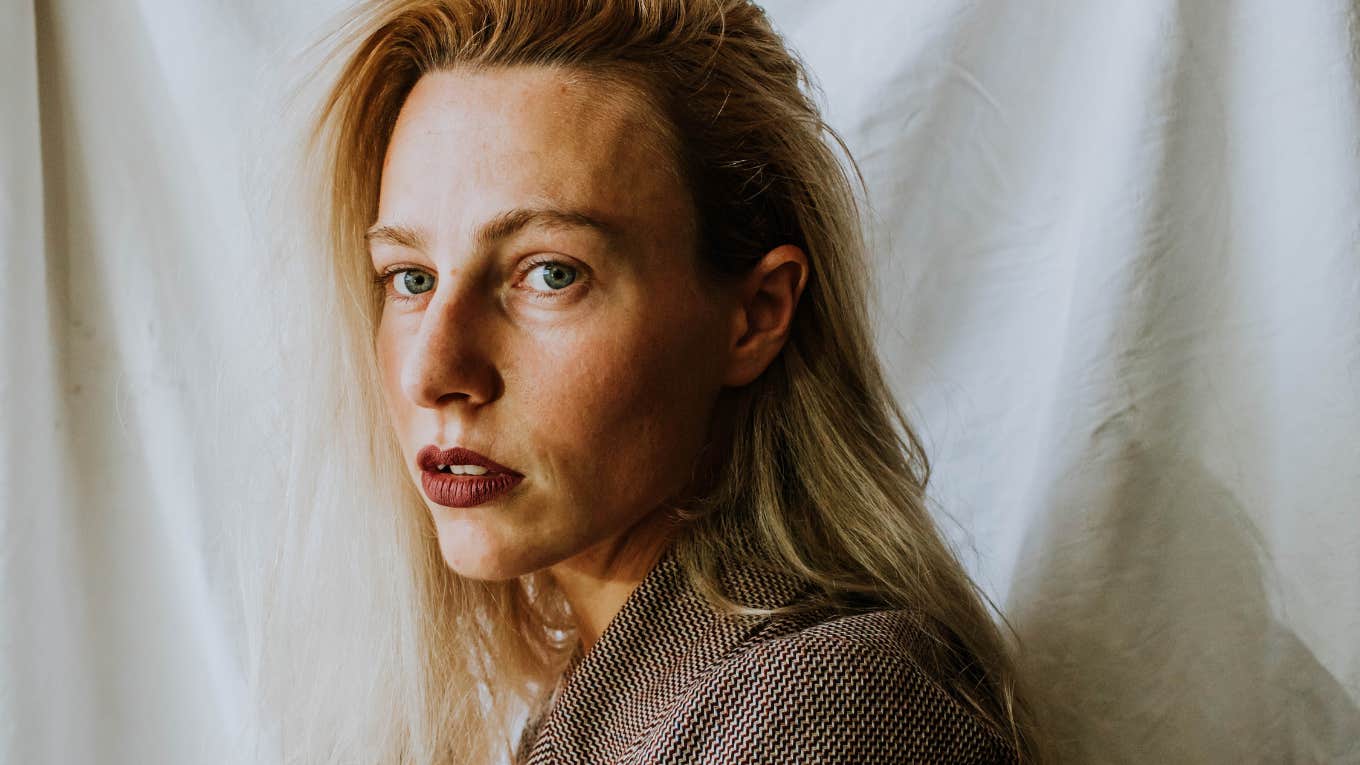 Dodokat | Shutterstock
Dodokat | Shutterstock Everyone copes with discomfort, trauma, and complex emotions in their own unique way, but for avoidant people, who prefer to run from and suppress these things, they often end up in more internal turmoil than it’s worth to escape them for a moment. Seeking a fleeting sense of comfort and control, avoidant people often deal with more shame and PTSD in response to their trauma in the long run, according to a 2021 study.
Even on smaller levels for people coping with insecurity, embarrassment, and self-consciousness, avoidant people almost always say certain phrases when they don’t want you to see the real them. They’d prefer to wield a fake sense of control by withholding certain pieces of themselves, not necessarily as manipulators, but to cope with their own internal feelings of insecurity and dysregulation.
11 phrases avoidant people say when they don’t want you to see the real them
1. ‘It’s just how I am’
 Bricolage | Shutterstock
Bricolage | Shutterstock
To avoid needing to open up, address problems, or show their authentic selves, avoidant people often use excuses like “it’s just how I am” to justify their own passivity. That’s part of the reason why they struggle with taking accountability — they refuse to be vulnerable and acknowledge when they’ve made a mistake, because they believe it’s synonymous with a personal fault of their own.
They’re so worried about how they’ll be perceived or being too emotional with others that even the simplest things, like an apology, are out of their grasp.
2. ‘I’m fine’
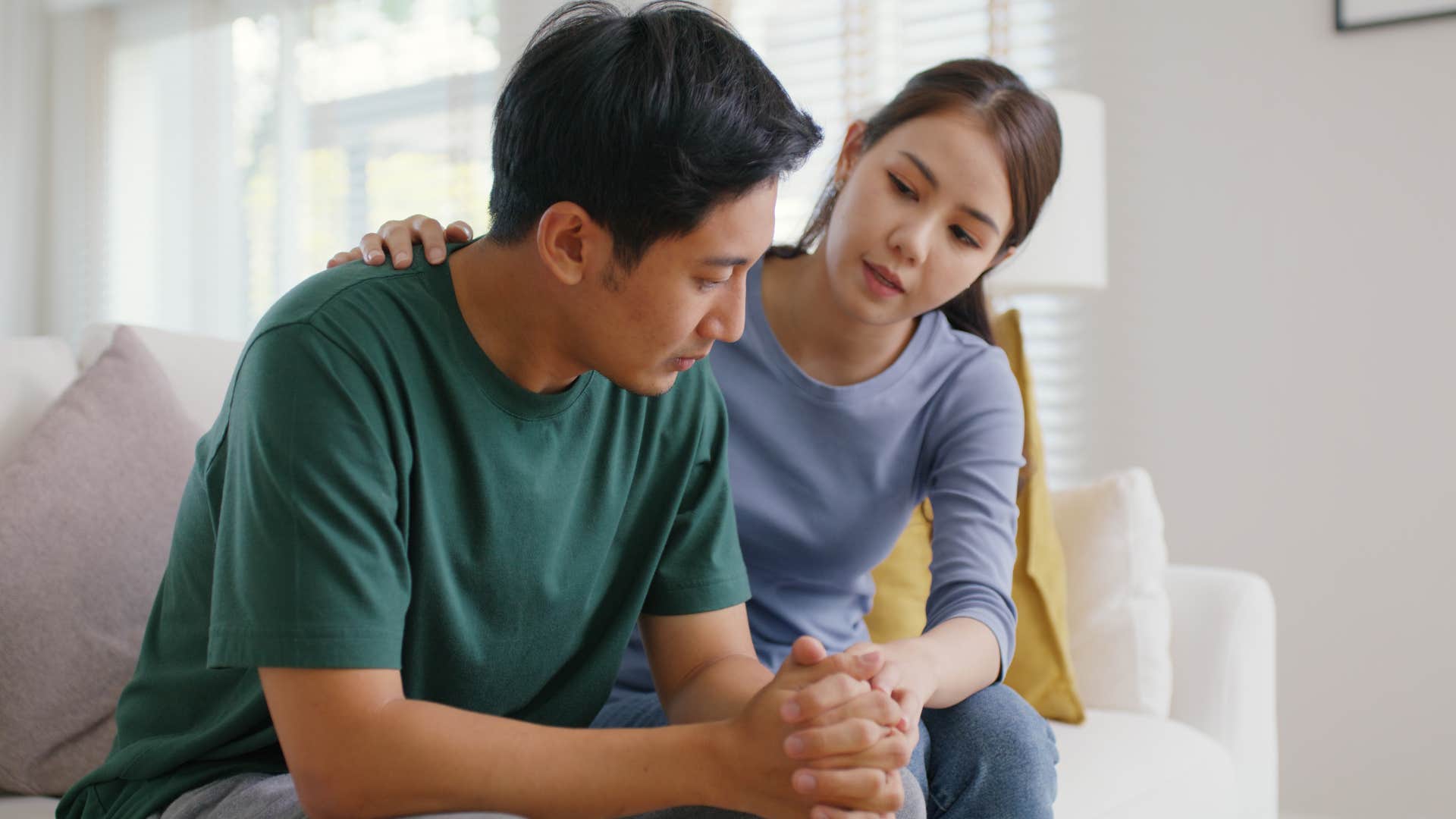 Chay_Tee | Shutterstock
Chay_Tee | Shutterstock
Like a study from BMC Psychology explains, the average avoidant person with insecure attachment styles generally struggles with emotional regulation. They suppress emotions, deflect conflict, and avoid difficult conversations because they don’t have the internal skills required to regulate their big emotions and show up healthily.
Instead of addressing those shortcomings and getting honest about where they need to grow, they isolate themselves and avoid the opportunities entirely.
3. ‘Feelings complicate things’
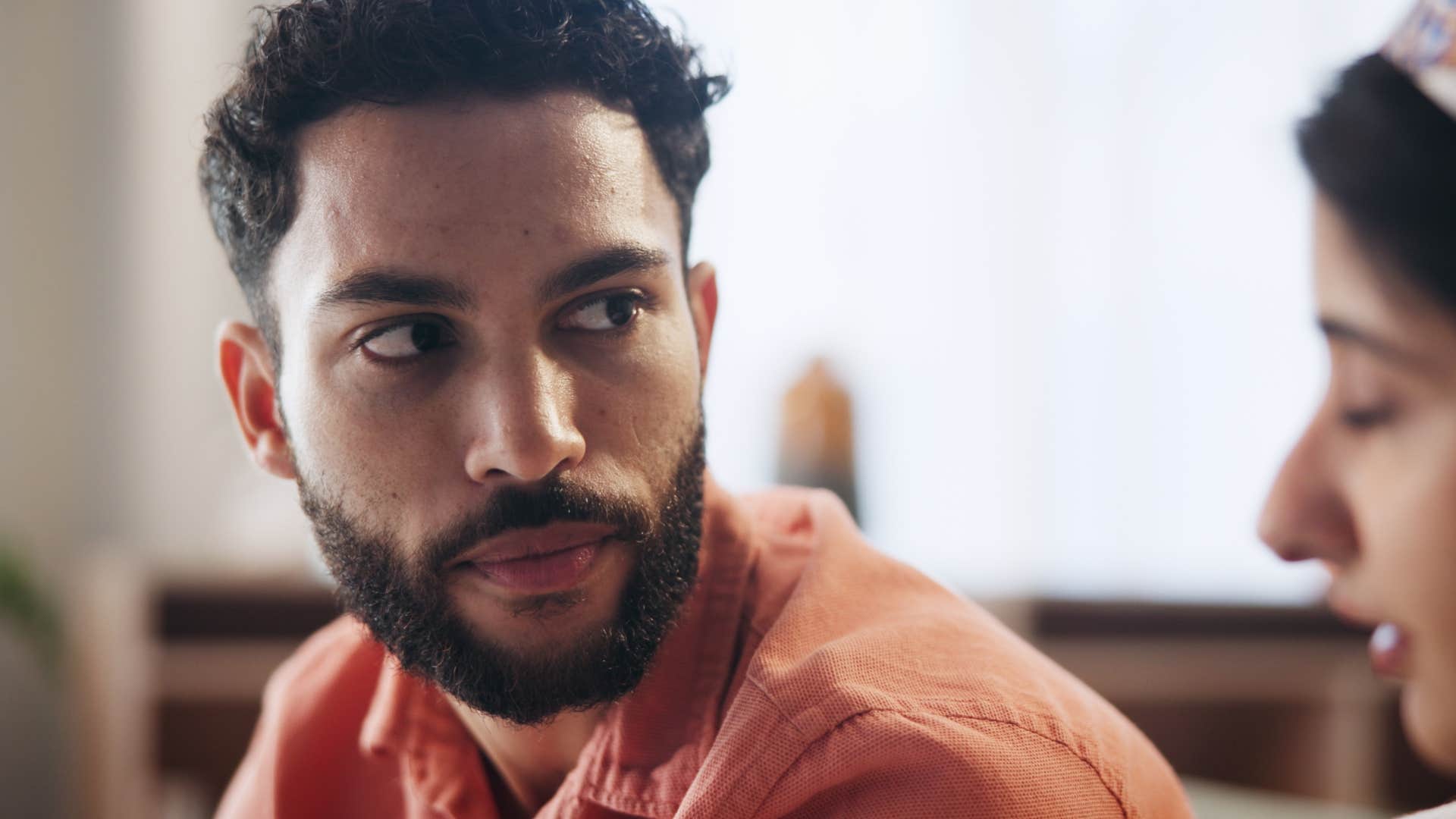 PeopleImages | Shutterstock
PeopleImages | Shutterstock
For someone who tries to hide their truly emotional self and who may struggle with regulating their emotions, of course, to them, feelings are inherently “complicated.” Avoidant people almost always say these phrases when they don’t want you to see the real them, so they hide the deeper layer of closeness and connection that vulnerability offers.
It’s an essential part of healthy intimacy, like research psychologist Dave Smallen explains, not just in romantic relationships, but also with friends, family, and close peers. Without this layer of emotionality to connect on a slightly deeper level, these avoidant people are constantly draining themselves with superficial conversations and surface-level interactions.
4. ‘I don’t like labels’
 Monkey Business Images | Shutterstock
Monkey Business Images | Shutterstock
According to a study from the Journal of Family Issues, avoidant people are less likely to commit to their relationships because they’re always operating from a level of insecurity that urges them to believe the relationship will inevitably fail or they’ll be abandoned and hurt in the end. They struggle to open themselves up completely because they end relationships and opt out of commitment before things reach that level.
They’re afraid of people seeing the real them, because they can’t protect themselves in relationships with things like, “well, they never saw the real me anyway,” in the face of their discomfort. It’s a protective strategy and a poor coping mechanism simultaneously, rooted in insecurity.
5. ‘You’re overthinking it’
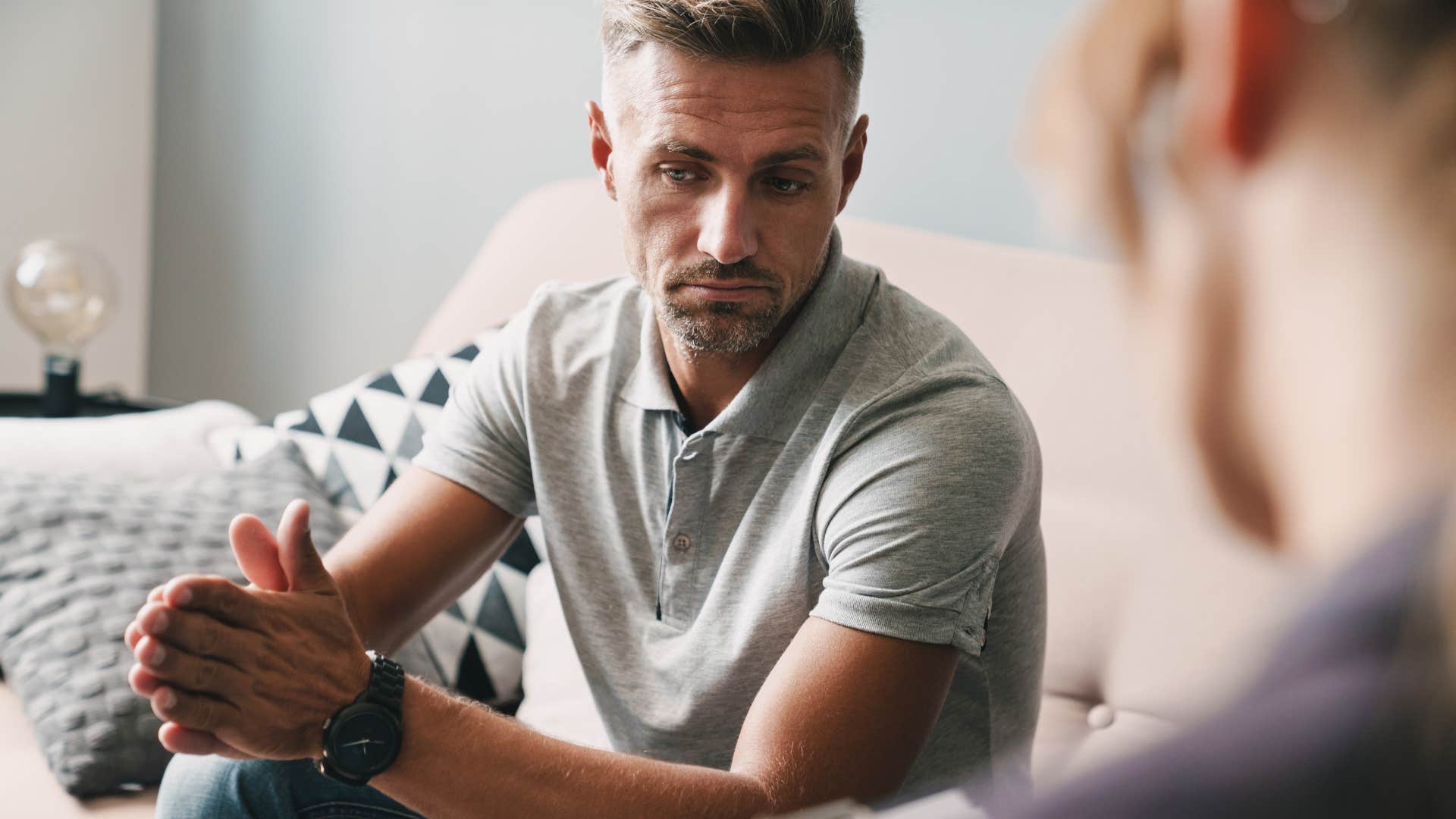 Dean Drobot | Shutterstock
Dean Drobot | Shutterstock
Some research suggests that avoidant attachment styles and the acceptance of gaslighting behaviors are linked, largely because they’re both rooted in a kind of pursuit toward security and control, no matter how misguided they may actually be.
By suggesting that other people are “overreacting” or “acting crazy” for trying to connect on a deeper level or express their own concerns, they can spark self-doubt in others that allows them to control confrontations that they find uncomfortable. They can distance themselves from true vulnerability and accountability, even if it’s at the expense of their relationships.
6. ‘Let’s not ruin what we have’
 Halfpoint | Shutterstock
Halfpoint | Shutterstock
Avoidant people view “the next step” in a relationship or the “next level” of closeness as a detriment to their own comfort. They feel like they lose an element of control and are finally expected to let down their emotional walls and show the real them.
That’s why they’re always defensive in the face of commitment, labels, and vulnerability. Avoidant people almost always say phrases like “let’s not ruin what we have” to justify staying superficially connected, even if what they really want, ironically, is security and safety.
7. ‘Can we talk about something else?’
 Davor Geber | Shutterstock
Davor Geber | Shutterstock
Many avoidant people struggle with building closeness and cultivating positive intimacy in their relationships because they tend to see others as less caring and responsive, according to a study from Personal and Social Psychology Bulletin. They believe that closeness is something to fear, associated with a loss of personal autonomy, control, and more emotional distress.
“Can we talk about something else?” is just one representation of how they avoid the emotional distress they internally associate with closeness. They’d prefer to shift away from conversations that challenge them or make them feel uncomfortable, even when it separates them from the people they really do care about in life.
8. ‘I’m not an emotional person’
 Irene Miller | Shutterstock
Irene Miller | Shutterstock
We’re all inherently emotional beings — it’s simply trauma, insecurity, and past experiences that impact how willing we are to express feelings and regulate our emotions. If you’ve been pressured with social stereotypes about masculinity, like many men have, you may be uncomfortable with emotional expression.
Similarly, if you’ve been punished in past relationships for expressing yourself, like at home with a parent growing up, you may cling to the “sterile, rigid, non-emotional” persona to avoid it entirely as an adult.
9. ‘I’ve always been independent’
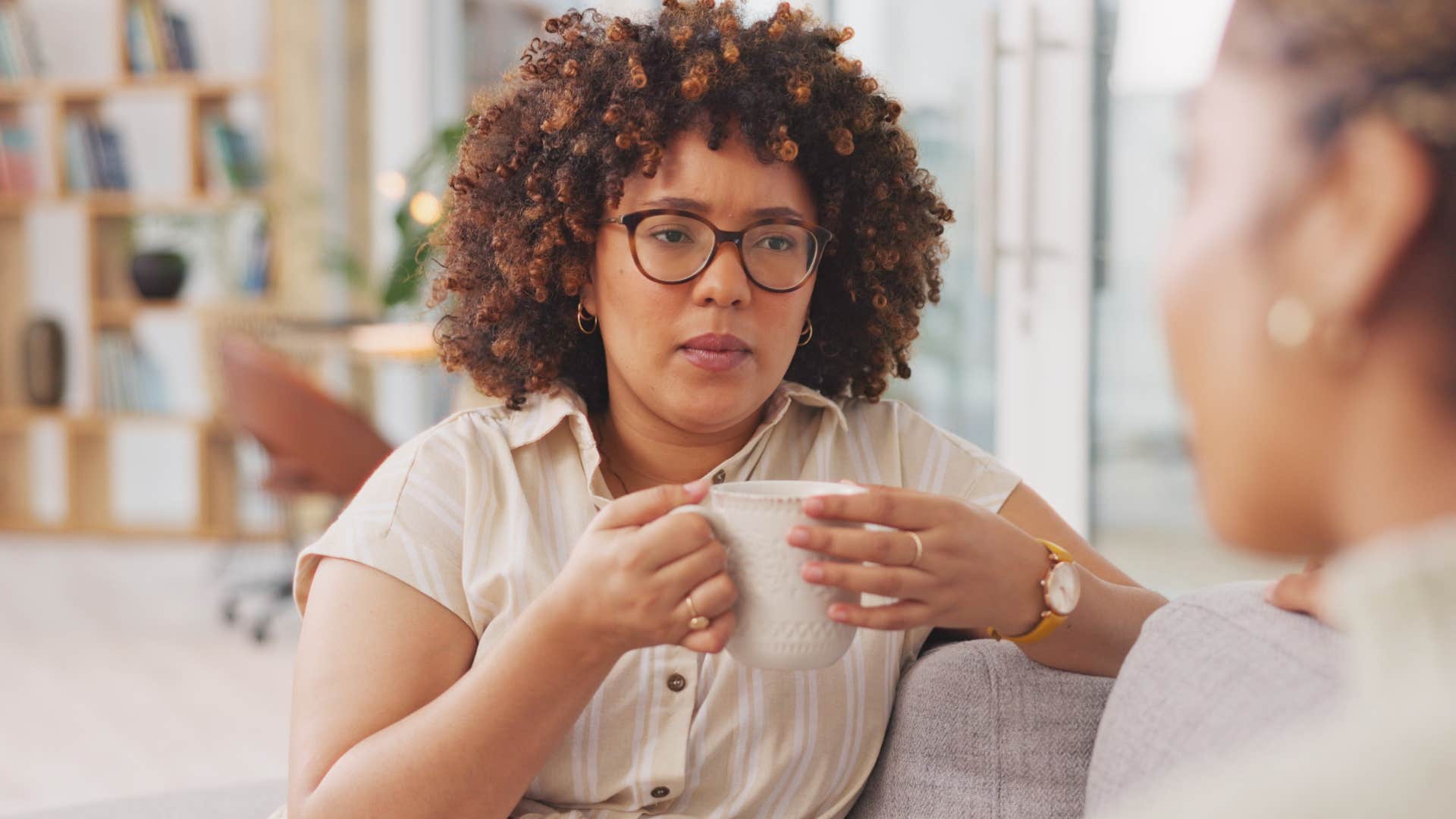 PeopleImages | Shutterstock
PeopleImages | Shutterstock
People who have dealt with unmet needs in childhood or who are still coping with unresolved trauma as adults may cling to their autonomy as a form of control. The less they “depend” on other people, the more “in control” they feel.
However, clinical psychologist Carla Marie Manly argues that the more control these independent people seek out by keeping restrictions on closeness in their relationships, the more loneliness, stress, and anxiety they actually cause.
Being independent is wonderful, but being so “independent” that you miss out on the joy, growth, and support of social relationships only isolates you in an unhappy, miserable way.
10. ‘Let’s just enjoy the moment’
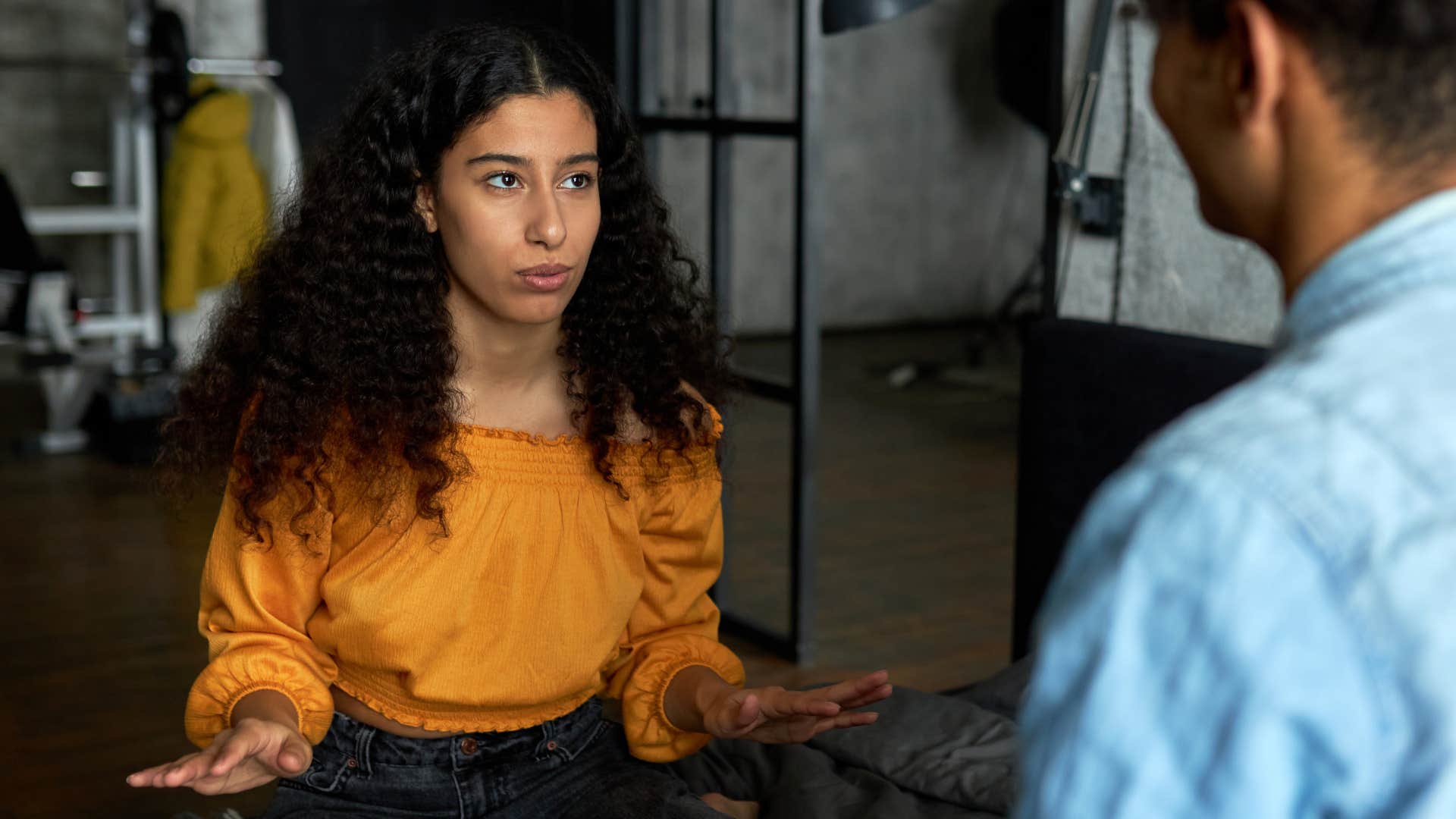 Anatoliy Karlyuk | Shutterstock
Anatoliy Karlyuk | Shutterstock
To justify their own emotional distance and avoid topics of conversation that make them uncomfortable, avoidant people don’t have to literally run away. They often instead use phrases like this to create strict emotional walls and distance in conversations. “Let’s just enjoy this moment” may seem subtle, but it’s their way of avoiding the conflict and confrontation that they dread.
Of course, healthy conflict resolution and the communicative ability to work through issues are fundamental to personal and relationship well-being. Without the ability to regulate through confrontation and express issues, everyone is more unsupported and lonely in the end.
11. ‘I’m just really busy’
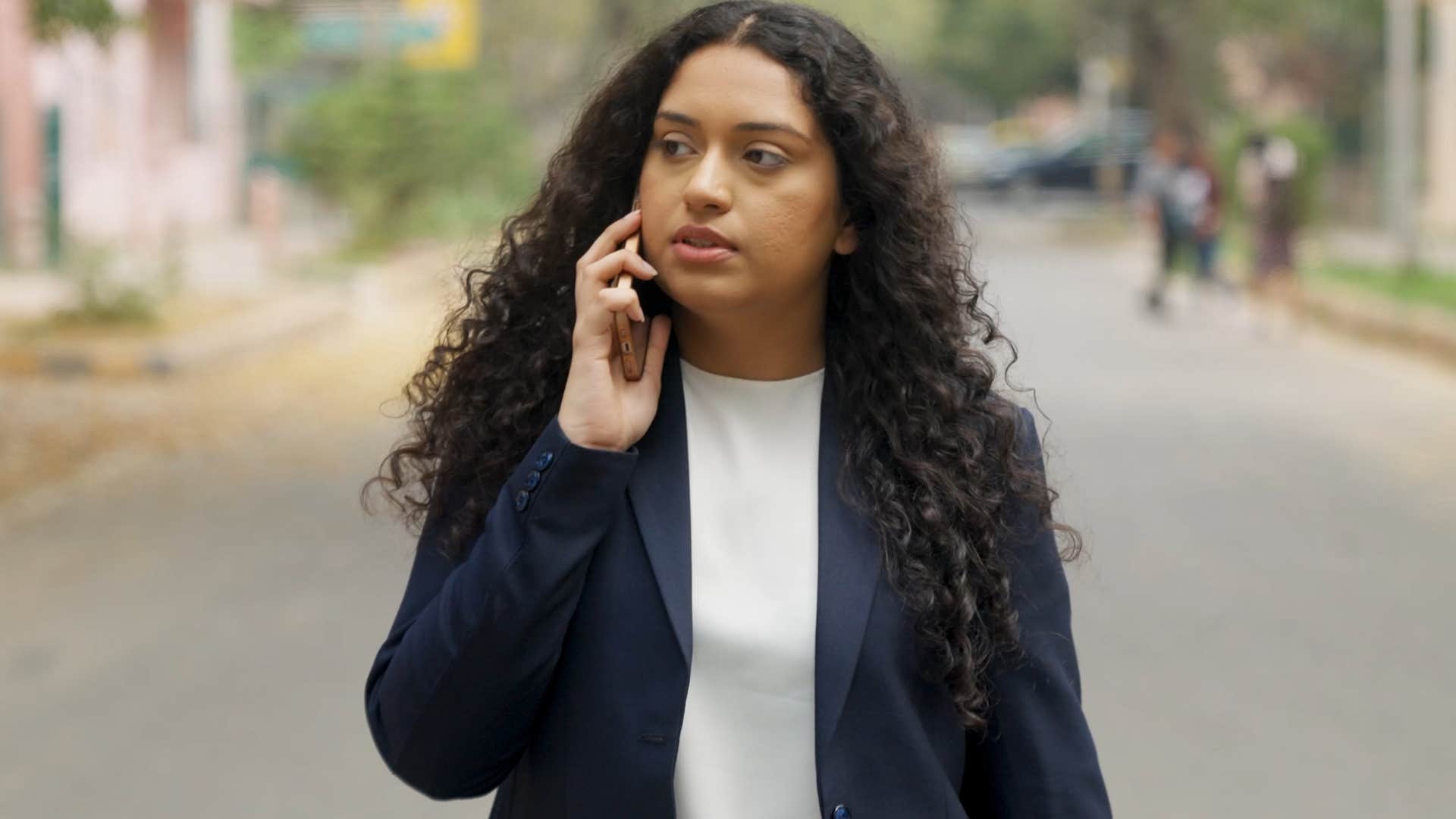 Cine Hut | Shutterstock
Cine Hut | Shutterstock
To justify their absence, make excuses for not responding to texts, or missing commitments, avoidant people almost always say phrases like this when they don’t want you to see the real them. When they’re feeling out of control in their lives, whether it’s on an emotional level or not, they hide away to protect their perception.
Even if it comes at the expense of their relationships and personal well-being, this isolation offers them a fleeting sense of control and security.
Zayda Slabbekoorn is a senior editorial strategist with a bachelor’s degree in social relations & policy and gender studies who focuses on psychology, relationships, self-help, and human interest stories.

